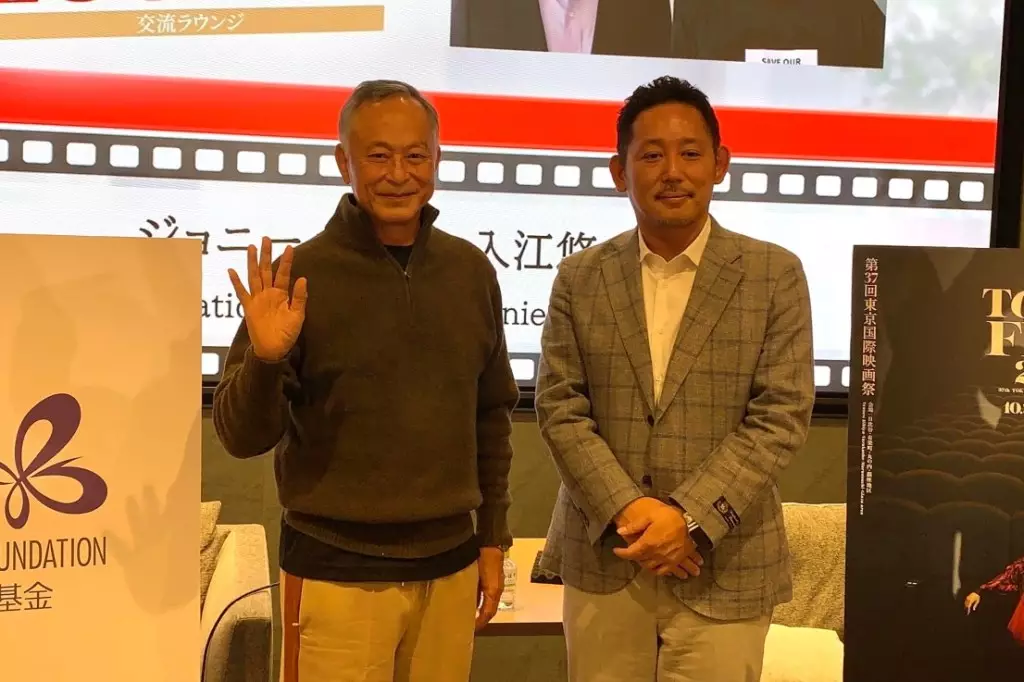Johnnie To, a luminary in Hong Kong cinema, recently engaged in a stimulating dialogue with Japanese director Yu Irie at the Tokyo International Film Festival (TIFF). Their conversation not only highlighted To’s remarkable journey through decades in filmmaking but also shed light on the evolving landscape of Hong Kong’s film industry. Notably, To acknowledged the increasing limitations faced by contemporary Hong Kong filmmakers, a poignant reminder of the shifting dynamics imposed by external forces.
To’s cinematic style is characterized by an unconventional approach to scriptwriting. He revealed that he often embarks on film projects without a completed screenplay, which he believes enables a more dynamic creative process. “Creating a proper screenplay before you start shooting means that the movie is already completed,” To explained, indicating a preference for spontaneity over rigid structure. This philosophy reflects a desire to retain the organic nature of storytelling, allowing for improvisation and a genuine expression of emotion during filming.
To’s unorthodox methods impact not only his approach to directing but also influences his actors. He noted that by the time they are about one-third into a project, the cast tends to grasp the film’s essence and the director’s vision. This reliance on intuitive collaboration could lead to stimulating performances, yet To humorously cautioned against his style, suggesting that it might not be the best methodology for novice filmmakers. The honesty in his reflection reveals both the confidence he has in his craft and the wisdom born from years of experience.
As a prolific filmmaker, To has often taken on multiple projects simultaneously, managing to maintain distinct styles and narratives in his different creations. His ability to navigate between genres and themes adds depth to his versatility, allowing him to explore commercial pathways while simultaneously pursuing more artistic endeavors. “I’d start shooting one thing, then drop it for a few months if I wasn’t feeling inspired,” he explained, emphasizing his commitment to artistic integrity over mere productivity.
A significant aspect of To’s career involves tackling financial obstacles head-on, a challenge that many filmmakers can relate to. Reflecting on his 2008 film “Sparrow,” he explained that the production journey extended over two to three years, marked by funding shortages that forced him to engage in concurrent filmmaking. The reality of securing financing in a competitive market underscores the resourcefulness required to sustain creative aspirations, especially for independent filmmakers.
The Impact of Censorship on Artistic Expression
One profound element of the TIFF discussion was To’s commentary on the state of censorship within Hong Kong’s film industry. In recent years, he noted, filmmakers have grappled with increased regulation, primarily driven by political pressures that stifle creative expression. This situation is particularly concerning for emerging voices in cinema, as evidenced last year when three films screened at Hong Kong’s Fresh Wave International Short Film Festival were subjected to edits and alterations, highlighting the growing tension between artistic freedom and governmental control.
To candidly remarked that young filmmakers must adapt to the current landscape where censorship looms large. He urged them to remain cognizant of how their creative messages are conveyed in order to navigate the intricate and often perilous waters of censorship. Despite the restrictions, To encouraged burgeoning filmmakers by urging them not to confine themselves to Hong Kong. “If you can’t create the film in Hong Kong, make it in Singapore, Malaysia, Taiwan, or even here in Japan,” he suggested, highlighting the necessity of seizing opportunities beyond geographical boundaries.
Encouraging Future Generations
Looking ahead, To underscored the urgent need for increased investment in the Hong Kong film industry, whether from governmental agencies or private sectors. This emphasis on investment represents a proactive approach to nurturing the next generation of filmmakers. He expressed a sense of responsibility, realizing that with age comes the recognition that the industry is in need of revitalization if it is to flourish.
As Johnnie To approaches his milestone 70th birthday, his reflections serve as both a personal testament and a rallying cry for those who aspire to tell stories through the lens. He embodies the spirit of creativity and resilience that defines the art of filmmaking, encouraging young visionaries to harness their talent and craft compelling narratives, regardless of the constraints imposed upon them. His conversation with Yu Irie at TIFF transcended mere discourse; it became a powerful exploration of passion, adaptation, and hope in the ever-evolving world of cinema.
